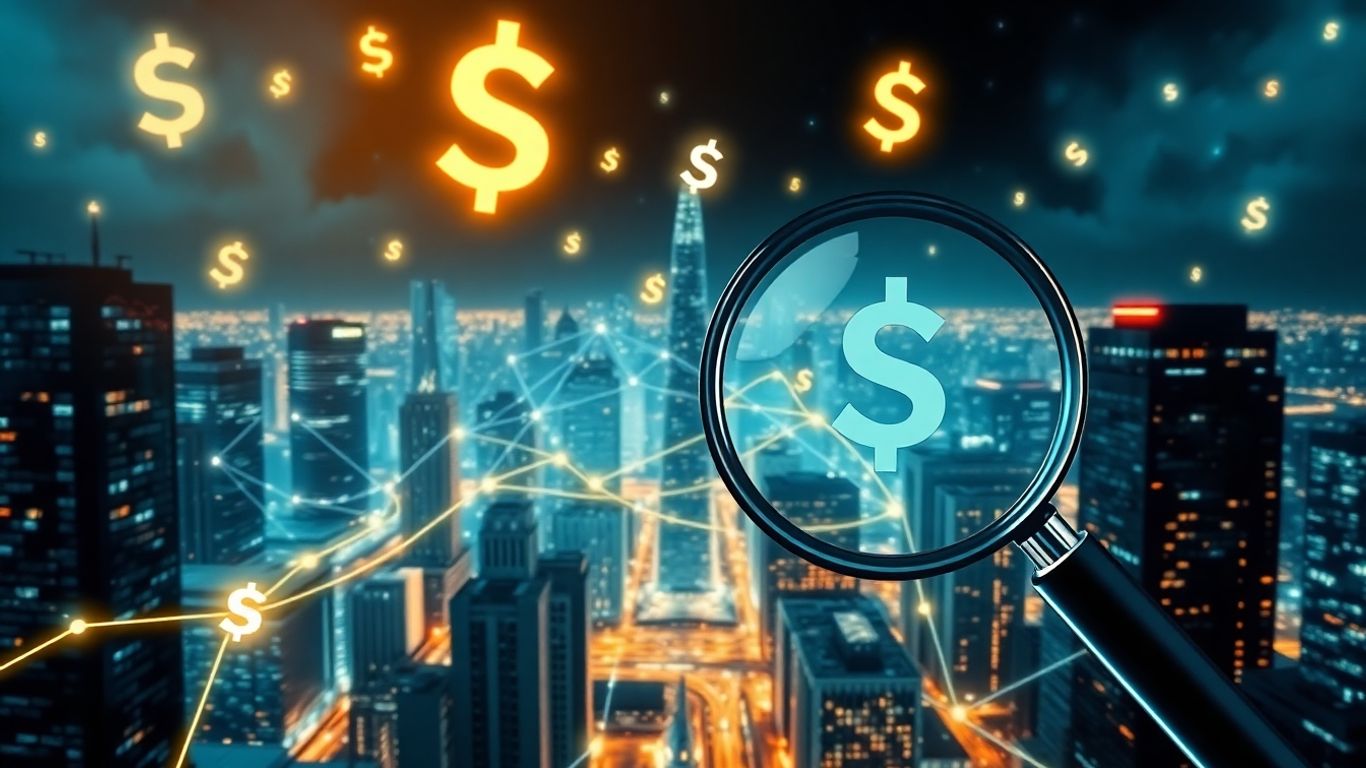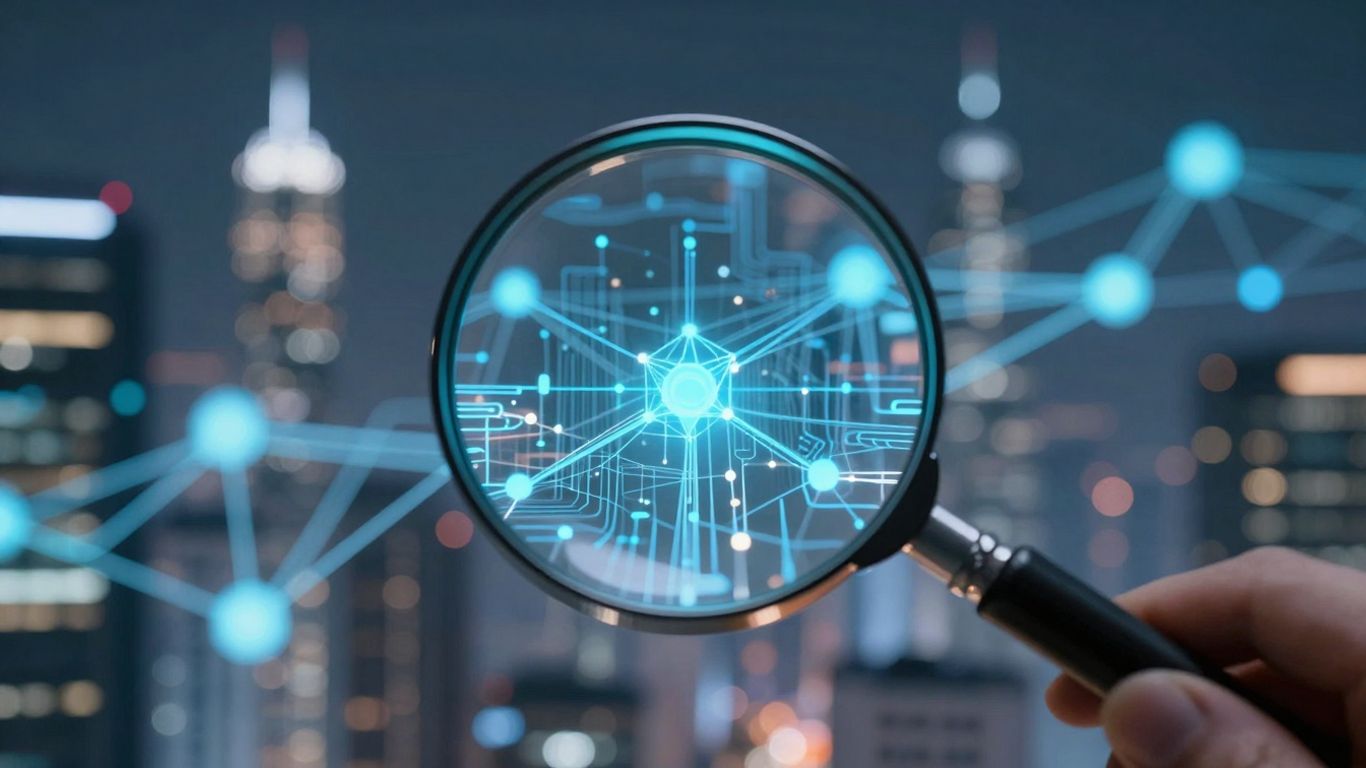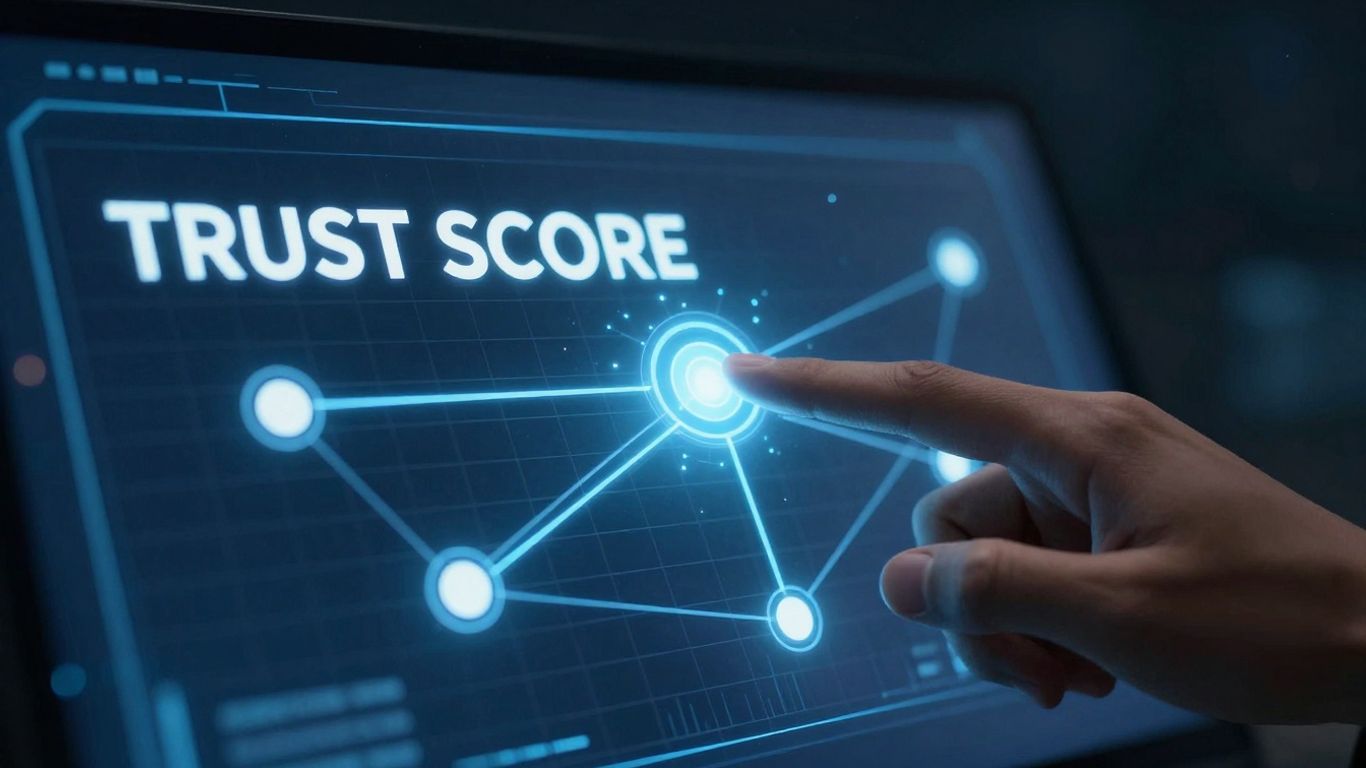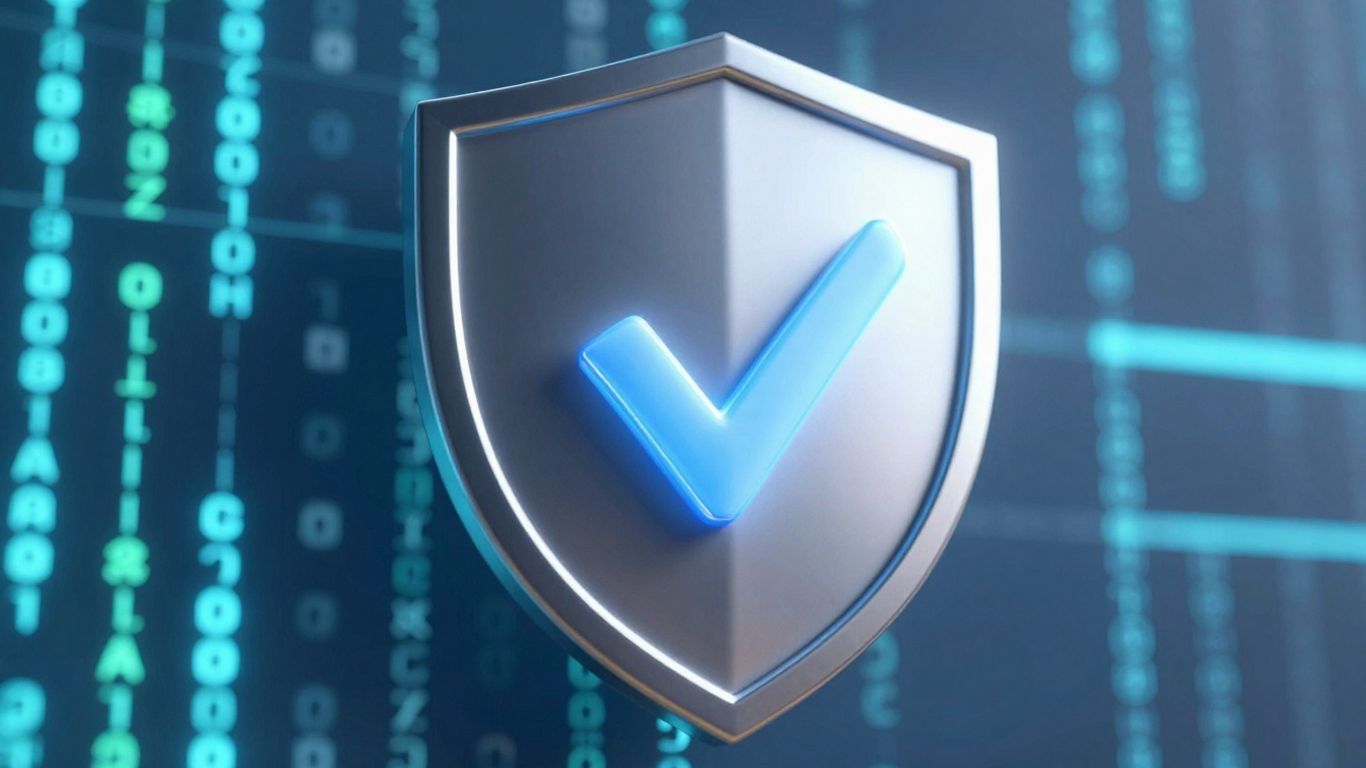[ newsletter ]
Stay ahead of Web3 threats—subscribe to our newsletter for the latest in blockchain security insights and updates.
Thank you! Your submission has been received!
Oops! Something went wrong. Please try again.
Explore blockchain and audit in finance. Learn about evolving auditor roles, new skills, and regulatory challenges in this dynamic landscape.





It feels like every day there's a new headline about blockchain or AI changing the world. In finance, these two technologies are really starting to show how they can work together, especially when it comes to keeping things honest and accurate. Think about it: we need ways to trust that our money is safe and that financial records are correct. This is where blockchain and audit come into play, offering some pretty interesting solutions to old problems.
So, what's the big deal with blockchain in the world of checking financial records? Think of it like a super-powered digital ledger. Instead of one person or company keeping track of everything in their own private book, blockchain spreads that record out across many computers. This makes it really hard for anyone to cheat the system.
This shared ledger means every single transaction is recorded and visible to everyone involved. Once a transaction is added, it's pretty much permanent. It's like having a history book for all your money movements that can't be erased or altered. For auditors, this is a game-changer. We can follow the money trail from start to finish with much less guesswork. This makes spotting odd or suspicious activity way easier. It means less time spent digging through old papers and more time actually understanding what's going on financially. It really helps in managing risks associated with new technologies [2ba3].
Because blockchain records are so hard to change, they act as a strong defense against fraud. If someone tries to mess with a transaction after it's been recorded, the system flags it. This gives auditors a lot more confidence that the data they're looking at is real and hasn't been tampered with. It cuts down the chances of sneaky business practices going unnoticed. It's like having a built-in security guard for your financial data.
Keeping up with rules and regulations can be a headache. Blockchain can simplify this a lot. Since all transactions are recorded transparently and permanently, it makes it easier to prove that a company is following the rules. Auditors can quickly verify transactions and check for compliance without having to manually go through mountains of paperwork. This speeds up the whole audit process and makes it more accurate. It's about making sure the digital gears of finance turn smoothly and securely.
The way auditors do their jobs is changing, and honestly, it's about time. Gone are the days when auditing was just about sifting through piles of paper and checking ledgers. The digital world has thrown a whole new set of tools and challenges at us, and auditors really need to keep up. It's not just about crunching numbers anymore; it's about understanding the whole digital ecosystem a company operates in.
Auditors today can't just be number wizards. They've got to be tech-savvy. This means getting comfortable with things like data analytics, understanding how artificial intelligence (AI) works, and even getting a handle on cybersecurity. It's a constant learning game. You have to be willing to update your skills regularly, or you'll get left behind. Think of it like this: if you were a mechanic who refused to learn about fuel injection, you wouldn't be much use these days, right? It's kind of the same for auditors.
The shift means auditors are moving from just looking backward at what happened to also looking forward, helping companies manage risks associated with new technologies. It's a more proactive stance.
Audits aren't just about financial statements anymore. They're broadening to include things like how well a company protects its digital information. With so much business happening online, checking a company's cybersecurity measures is becoming a standard part of the audit. It's about making sure sensitive data is safe from online threats. This also means auditors might need to look at how companies use new technologies, like blockchain, to make sure they're being used correctly and securely. It's a bigger picture now, covering more than just the balance sheet.
Auditors are now expected to provide insights that drive business improvement. This requires a deep understanding of the business context and the ability to communicate complex technical findings clearly. The auditing world is changing fast, thanks to new tech. We’re talking about things like AI, machine learning, and blockchain. These aren’t just buzzwords; they’re actually changing how audits are done, making them faster, more accurate, and covering more ground. But it also means auditors need to learn new skills and think about new challenges.

Okay, so auditing isn't just about crunching numbers anymore, especially when you're looking at blockchain. The whole game has changed, and auditors need to get with the program. It’s not enough to just know accounting rules; you’ve got to be comfortable with technology. Think of it like this: if you were a mechanic who refused to learn about fuel injection, you wouldn't be much use these days, right? It's kind of the same for auditors.
Auditors today need to get friendly with data. This means more than just looking at spreadsheets. You'll be working with tools that can sift through massive datasets. Knowing how to use this software is key. You don't need to be a programmer, but understanding what tools like artificial intelligence (AI) and machine learning can do, and how they might affect financial data, is important. AI is becoming more common, and it's causing some uncertainty about its impact on the accounting world.
When you're auditing blockchain, you're not just looking at traditional financial records. You're also looking at the code that runs on the blockchain, like smart contracts. These are basically self-executing agreements. Auditors need to understand how these contracts work, what could go wrong with them, and how to check if they're secure. This also means getting a handle on cybersecurity risks. Companies are online more than ever, so auditors need to know what threats exist and how to assess a company's defenses.
Because of all these changes, auditors are becoming more like tech-savvy investigators. It's not just about looking backward at what happened; it's also about looking forward and helping companies manage risks associated with new technologies. This means being able to dig into the details, understand how systems are built, and identify potential problems before they become big issues. It’s a more proactive stance than just checking old paperwork.
The world of auditing is changing fast. New tech like blockchain and auditing is making a big difference. This article will look at how auditors are adapting, what new tools they’re using, and the challenges they face. It’s all about staying current in a digital world.
Here's a quick rundown of what you need to focus on:
To stay relevant in this rapidly changing field, auditors need to commit to ongoing learning. This means keeping up with new blockchain protocols and staying informed about the latest security threats. It’s about making sure our professional judgment remains sound, no matter what new tech comes our way.
Bringing blockchain into the auditing world isn't just about new tools; it brings up some serious ethical questions and professional hurdles we need to think about. It’s a bit like learning to drive a new kind of car – exciting, but you need to know the rules of the road.
Our reputation as auditors is built on being independent and sticking to professional standards. When we start using new technologies like blockchain, we need to make sure these core principles aren't compromised. For instance, if the company we're auditing is also the one providing the blockchain auditing tools, that creates a potential conflict of interest. We need to be clear about our role and ensure that our judgment isn't clouded by who is paying us or what technology we're using. It’s about staying objective and making sure our audit opinions are based on facts and sound professional judgment, not on the convenience of the technology. This is a key part of verifying transactions and data access. Auditors must always prioritize unbiased assessment over technological ease.
When we talk about blockchain, we're often dealing with a lot of sensitive information. While the technology itself is designed to be secure, how we handle that data before it even gets onto the chain, and how we access it afterward, is a big deal. Auditors need to be super careful about who sees what and make sure everything is protected from unauthorized eyes. It’s not just about the blockchain itself, but the whole process around it. We have to think about things like:
The decentralized nature of blockchain means data is spread out, which can be good for security, but it also means we need to be extra vigilant about how we manage access and protect individual privacy. It’s a delicate balance.
If we're using AI or machine learning tools to help with blockchain audits, we have to ask if those tools are fair. Algorithms can sometimes have hidden biases, which could lead to skewed results or unfair conclusions. Auditors must be able to question and understand how these algorithms arrive at their findings. This means looking under the hood, so to speak, to make sure the technology isn't accidentally creating new problems while trying to solve old ones. We need to be able to explain why a certain transaction was flagged or why a risk was identified, and that explanation needs to hold up. It’s about making sure the technology works for everyone, not just a select few.
To stay relevant in this rapidly changing field, auditors need to commit to ongoing learning. This means keeping up with new blockchain protocols, understanding smart contract functionalities, and staying informed about the latest security threats. Beyond technical skills, a strong ethical compass is non-negotiable. Auditors must be prepared to address situations where the technology might present new avenues for misconduct or where data integrity could be compromised. This requires a proactive approach to ethical decision-making, ensuring that professional skepticism is applied rigorously, even when faced with complex, novel systems. It’s about making sure our professional judgment remains sound, no matter what new tech comes our way.

Regulators are still trying to catch up with all this new technology. Laws and rules that were made for the old way of doing things don't always fit neatly with blockchain and AI. This uncertainty makes businesses hesitant to fully jump in. We need clearer guidelines on how these technologies should be used, especially when it comes to financial reporting and audits. It's a bit like trying to play a game where the rules keep changing.
This is a big one. Regulators need to spell out exactly what the rules are for using blockchain in financial activities. Think about things like payments, investments, and reporting. Right now, there's a lot of gray area. Companies aren't always sure if what they're doing is allowed, especially when dealing with digital assets. This lack of clear direction can slow down innovation and adoption. We need frameworks that allow for the benefits of blockchain without creating new risks for the financial system.
Blockchain is known for transparency, which is great for audits, but what about sensitive financial data? We need to make sure that while transactions are visible, the actual private information of individuals and companies stays protected. It's a balancing act between openness and confidentiality. Finding ways to keep data private while still using the benefits of a shared ledger is key. This means looking at how existing privacy laws, like GDPR, apply to decentralized systems and figuring out new ways to protect personal information.
How do auditors verify records on a blockchain consistently across different platforms? That's the million-dollar question. Each blockchain might have its own way of recording things, and auditors need a common ground. Standardizing how audit trails are created and accessed across various blockchain networks is important for reliable verification. Without this, comparing data or performing audits across different systems becomes a real headache. It's about making sure that no matter what blockchain a company uses, auditors can get a clear and consistent picture of the transactions.
So, what's next for blockchain and auditing? It's a pretty exciting space right now, with a lot of new ideas popping up. We're seeing things like Decentralized Finance, or DeFi, really start to take hold. This whole idea of finance without the usual banks and middlemen is a big deal, and it means auditors will have to get used to checking systems that aren't controlled by a single company. It’s a shift from traditional financial structures, and understanding these new models is key.
DeFi is changing how we think about financial services. Instead of relying on banks, DeFi uses blockchain to offer lending, borrowing, and trading directly between users. For auditors, this means a whole new landscape to examine. We're talking about smart contracts that automatically execute agreements, and digital assets that move without traditional intermediaries. Auditors will need to become experts in verifying the code and logic of these smart contracts to ensure they're secure and function as intended. This requires a move beyond just looking at financial statements to understanding the underlying technology that powers these decentralized systems. It’s about ensuring the integrity of code that acts as the new financial infrastructure.
Imagine an audit that doesn't happen months after a financial period closes, but is happening all the time. Blockchain's ability to record transactions instantly and immutably makes this a real possibility. Continuous auditing, powered by blockchain and AI, means auditors can monitor financial activity as it occurs. This allows for immediate detection of anomalies or potential fraud, rather than discovering issues much later. It's a move from a reactive approach to a proactive one, giving businesses much faster feedback on their financial health. This also means auditors can spend less time on manual checks and more time on strategic analysis, providing deeper insights into business operations.
Ultimately, all these changes are about making audits more valuable and relevant. By using new technologies like blockchain, auditors can provide deeper insights, identify risks more effectively, and offer more timely and accurate information. This means audits can move from being a backward-looking exercise to a forward-looking tool that helps organizations make better decisions. It’s about providing assurance in a digital world, and that’s a pretty exciting prospect. The potential for efficiency gains is significant, with some estimates suggesting up to 70% [985c].
Here’s a quick look at how technology can boost audit value:
The integration of blockchain into financial systems offers unprecedented transparency and security. However, it also requires auditors to adapt their skills and methodologies to effectively audit these new systems. It's a big change, but one that promises to make auditing a more dynamic and impactful profession.
So, what does all this mean for the future of auditing? It's clear that sticking to the old ways just won't cut it anymore. Blockchain and other new technologies are here to stay, and they're changing how businesses work and how we check their records. Auditors really need to get comfortable with these tools and learn new skills, or they'll get left behind. It’s not just about keeping up with the latest tech, though. It’s about making sure we can still trust the systems we rely on, and that means staying sharp, ethical, and ready to adapt. The future of auditing is looking more automated and more connected, and that’s a good thing for everyone involved.
Think of blockchain auditing like being a detective for digital money and records. It's about checking if the systems that use blockchain, like for digital coins or tracking items, are safe, work right, and follow all the rules. We look super closely at the digital records to make sure no one messed with them and that everything is honest and fair.
Blockchain is like a super secure digital diary that everyone involved can see. This makes it much easier to trust the numbers and see exactly where money is going. It also makes it simpler to prove you're following the rules, saving auditors tons of time compared to digging through old papers.
Pretty much! Auditors today need to be good with technology. It’s not just about numbers anymore. They need to understand things like data analysis, how artificial intelligence (AI) works, and how to keep digital information safe (cybersecurity). It’s like learning a new language to keep up.
Because records on a blockchain are really hard to change or delete once they're made, it's a great way to prevent fraud. If someone tries to change something, the system can easily spot it. This gives auditors more confidence that the information they're looking at is real and hasn't been messed with.
While blockchain is open, it can be hard to protect private financial details. Auditors need to find ways to keep sensitive information secret while still using the benefits of shared records. Also, in systems where no single company is in charge, figuring out who is responsible when something goes wrong can be confusing.
Things are getting really exciting! We're seeing more automated systems and the chance to check things in real-time, not just after the fact. Blockchain is also being used more in finance without traditional banks (DeFi). This means audits will become more about helping businesses make smart choices for the future, not just checking the past.


